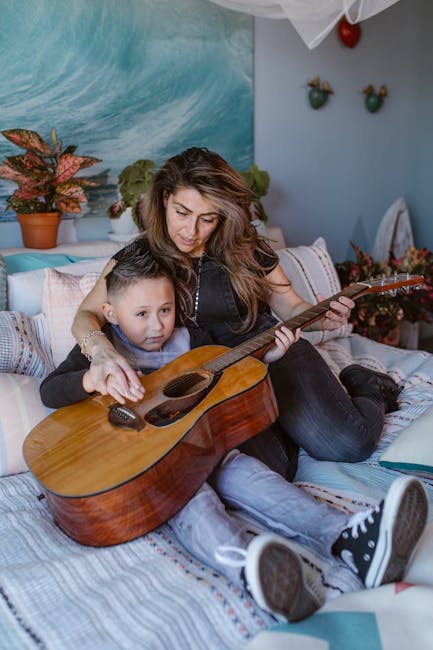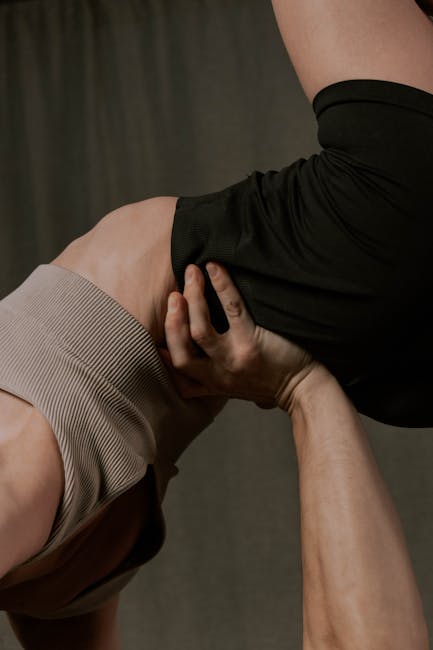So, you’ve decided to embark on the noble journey of mastering the guitar. Congratulations! You are now officially one step closer to becoming the next guitar god. But before you can shred like Hendrix or serenade like Clapton, you’ll need to master the essential chords for beginners. Don’t worry, we’ve got you covered. Get ready to strum, pick, and rock your way to guitar greatness!
Contents
- 1 Understanding Open Chords: The Foundation of Guitar Playing
- 2 Exploring Major Chords: Your First Step into Music
- 3 Navigating Through Minor Chords: A Different Emotion
- 4 The Power of Seventh Chords: Adding Depth to Your Playing
- 5 Transitioning Between Chords: Techniques for Smooth Playing
- 6 Barre Chords Unveiled: Expanding Your Chord Repertoire
- 7 Practice Tips for Mastering Chords: Building Muscle Memory and Speed
- 8 FAQs
- 9 Rock On!
Understanding Open Chords: The Foundation of Guitar Playing
Picture this: you’re strumming away on your guitar, feeling like a rockstar, when suddenly your fingers get all tangled up in the strings. What’s the deal? Well, my friend, it’s time to talk about open chords.
Open chords are like the bread and butter of guitar playing. They’re the basic building blocks that hold everything together. Without them, you’d be lost in a sea of complicated fingerings and confusing frets. But fear not, because once you understand open chords, you’ll be well on your way to guitar greatness.
Now, let’s break it down for you. Open chords are formed by playing the strings without fretting any notes. This gives you a beautiful, full sound that’s perfect for strumming along to your favorite tunes. And the best part? There are tons of open chords to choose from, so you can mix and match to create your own unique sound.
So, grab your guitar, get those fingers moving, and start mastering those open chords. Before you know it, you’ll be playing like a pro and impressing all your friends. Rock on!
Exploring Major Chords: Your First Step into Music
So you’ve decided to take the plunge into the world of music, congrats! Major chords are a great starting point for any aspiring musician, so let’s dive in and explore what they’re all about.
First things first, let’s talk about what exactly a major chord is. Essentially, a major chord is made up of three notes – the root, the third, and the fifth. These notes come together to create a harmonious sound that forms the backbone of countless songs.
One of the coolest things about major chords is how versatile they are. Whether you’re strumming them on a guitar, playing them on a piano, or even singing them, major chords are like the Swiss Army knife of music – they can do it all!
So grab your instrument of choice, get your fingers ready, and start playing around with some major chords. Before you know it, you’ll be well on your way to becoming the next musical sensation. Who knows, maybe you’ll even write the next big hit!

Once you’ve mastered the major chords, it’s time to delve into the world of minor chords. They may seem a bit somber and moody, but they can add a whole new level of emotion to your music.
When navigating through minor chords, it’s important to remember that they can evoke different feelings than their major counterparts. Here are a few tips to help you understand and use minor chords effectively:
- Experiment with different voicings: Minor chords can sound drastically different depending on how you play them. Try out different fingerings and positions to find the one that suits the mood you’re aiming for.
- Pay attention to the root note: The root note of a minor chord sets the tone for the entire progression. Make sure it’s strong and clear to ensure that your minor chords have the desired impact.
Don’t be afraid to mix minor chords with major ones to create contrast and intrigue in your music. Remember, music is all about experimentation and expression, so have fun playing around with minor chords and exploring the range of emotions they can convey.
The Power of Seventh Chords: Adding Depth to Your Playing
So you’ve mastered your basic chords and you think you’re a hotshot musician, huh? Well, think again! Let me introduce you to the magical world of seventh chords – the secret sauce that will elevate your playing to a whole new level.
Picture this: you’re strumming along on your guitar, feeling like a rockstar, when suddenly, you throw in a seventh chord. Bam! Instant cool factor. That extra note adds a touch of sophistication and complexity to your music, making you sound like you know what you’re doing (even if you don’t).
But it’s not just about sounding fancy – seventh chords also add depth and richness to your playing. They create tension and release, leading the listener on a musical journey that will keep them hooked until the very end. Plus, they can help you explore different musical genres and styles, expanding your repertoire and keeping things interesting.
So, next time you’re jamming out, don’t be afraid to spice things up with a seventh chord or two. Trust me, your ears (and your audience) will thank you. Who knows, you might even become the next musical sensation, all thanks to the power of seventh chords!

Transitioning Between Chords: Techniques for Smooth Playing
Alright folks, let’s talk about transitioning between chords like a smooth jazz musician on a Sunday morning. No more awkward pauses or fumbling fingers – we’re here to help you glide effortlessly from one chord to the next like a seasoned pro.
First up, let’s talk about finger positioning. Your fingers are like the keys of a piano – they need to move with grace and precision. Make sure you’re not clenching your fingers too tightly or allowing them to flop around like a wet noodle. Keep them in a relaxed position and ready to pounce on the next chord like a hungry cheetah.
Next, let’s talk about the magic of practice. Rome wasn’t built in a day and neither is a killer chord progression. Spend time each day working on transitioning between chords, starting slow and gradually increasing speed. Before you know it, you’ll be playing those chords like an absolute legend.
And finally, don’t forget about the power of visualization. Close your eyes and imagine yourself effortlessly gliding from chord to chord, each note ringing out clear and true. Picture yourself commanding the fretboard like a rock god, and soon enough, you’ll be living that reality.
Barre Chords Unveiled: Expanding Your Chord Repertoire
So, you’ve conquered your basic open chords and now you’re ready to take your guitar playing to the next level. Enter: barre chords. These bad boys are like the swiss army knife of guitar chords – versatile, powerful, and able to handle just about anything you throw at them.
With barre chords, you can play the same chord shape all over the fretboard, unlocking a whole new world of musical possibilities. Say goodbye to boring ol’ open chords and hello to the sweet sound of versatility.
But wait, there’s more! Barre chords not only expand your chord repertoire, but they also strengthen your fingers and improve your dexterity. It’s like a workout for your hands, but way more fun (and with way better results).
So grab your guitar, get ready to unleash the hidden power of barre chords, and take your playing to new heights. Your fingers will thank you, your audience will thank you, and your inner rockstar will thank you. Rock on!
Practice Tips for Mastering Chords: Building Muscle Memory and Speed
So you want to master chords, huh? Well, you’ve come to the right place! Building muscle memory and speed is key to becoming a chord master. Here are some tips to help you along the way:
- Practice, practice, practice! The more you practice, the stronger your muscle memory will become. It’s like going to the gym, but for your fingers!
- Start slow and gradually increase your speed. Just like learning to walk before you can run, you have to start at a pace that’s comfortable for you and then work your way up. Baby steps, my friend, baby steps.
- Don’t be afraid to make mistakes. It’s all part of the learning process. Embrace the wrong notes and use them to fuel your determination to get it right next time.
Remember, Rome wasn’t built in a day, and neither will your chord mastery be. Be patient with yourself and keep pushing forward. Before you know it, you’ll be strumming those chords like a pro! Good luck!
FAQs
Why are chords important for beginners to learn on the guitar?
Well, imagine trying to build a house without a solid foundation. Chords are the building blocks of music, and mastering them will lay the groundwork for your guitar-playing journey.
What are some essential chords that beginners should focus on?
Think of the classic G, C, D, E minor, and A minor chords as the Fab Five of the guitar world. Mastering these bad boys will have you strumming along to all your favorite songs in no time.
How can beginners practice switching between chords smoothly?
Practice, practice, practice! Start slow and gradually increase your speed as you get more comfortable with the chord shapes. And remember, Rome wasn’t built in a day, so don’t get discouraged if it takes some time to nail down those transitions.
Are there any tips for making chord changes easier?
One word: efficiency. Make sure your fingers are positioned close to the frets and use the tips of your fingers for maximum leverage. And don’t be afraid to experiment with different finger placements to find what works best for you.
How important is proper finger positioning when playing chords?
Proper finger positioning is crucial for playing chords cleanly and efficiently. Think of your fingers as the superheroes of the guitar world – they need to be in the right place at the right time to save the day (and sound)!
Rock On!
Congratulations, you’ve now unlocked the secret to mastering the guitar with these essential chords for beginners. Now go forth, strum like you’ve never strummed before, and show the world what you’ve got! Remember, practice makes perfect, so keep rocking out and soon enough you’ll be the master of the fretboard. Keep jamming and don’t forget to add your own style to these chords - after all, the best musicians always put their own unique twist on things. So grab your guitar, unleash your inner rockstar, and let the music take you to new heights. Good luck, and may the riffs be ever in your favor!



